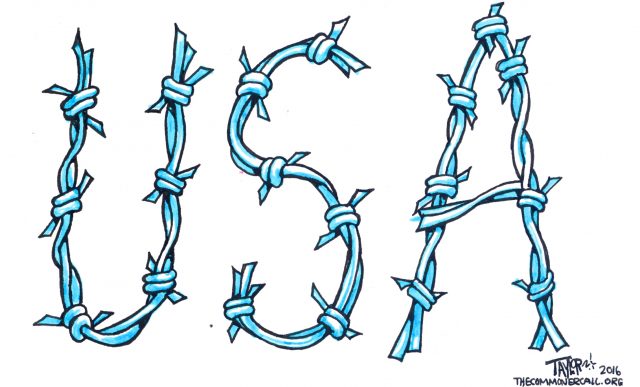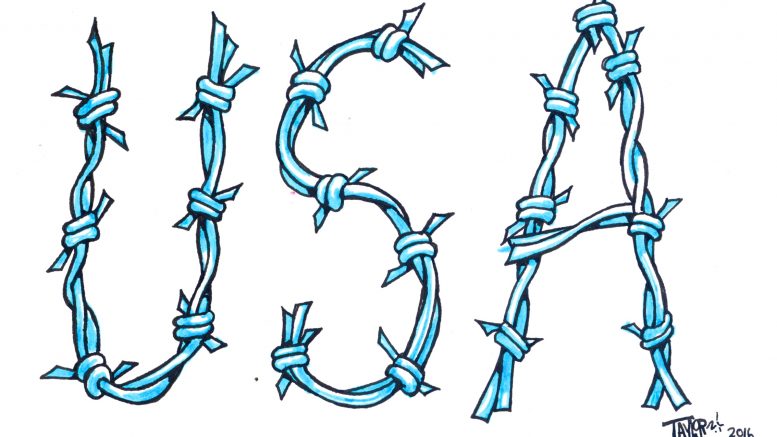
“Regardless of whether you have embarrassing information on your device, it’s about personal autonomy and living in a free society and not a police state.”
By Seth Harp
The Intercept (6/22/19)
I SHOULD HAVE kept my mouth shut about the guacamole; that made things worse for me. Otherwise, what I’m about to describe could happen to any American who travels internationally. It happened 33,295 times last year.
My work as a journalist has taken me to many foreign countries, including frequent trips to Mexico. On May 13, I was returning to the U.S. from Mexico City when, passing through immigration at the Austin airport, I was pulled out of line for “secondary screening,” a quasi-custodial law enforcement process that takes place in the Homeland Security zone of the airport.
Austin is where I was born and raised, and I usually get waved through immigration after one or two questions. I’m also a white man; more on that later. This time, when my turn came to show my passport, the U.S. Customs and Border Protection officer was more aggressive than usual in his questioning. I told him I’d been in Mexico for seven days for work, that I was a journalist, and that I travel to Mexico often, as he could see from my passport. That wasn’t enough for him, though. He wanted to know the substance of the story I was currently working on, which didn’t sit right with me. I tried to skirt the question, but he came back to it, pointedly.
He read my communications with friends, family, and loved ones. He went through my correspondence with colleagues, editors, and sources. …He also went through my personal photos, which I resented. Consider everything on your phone right now. Nothing on mine was spared.
I was going on three hours of sleep, and I hadn’t had anything to eat in the last 12 hours besides some popcorn and peanuts and a Monster energy drink. Had my blood sugar been higher, I might have cheerfully told him. Instead, I muttered something about not having a legal obligation, under the circumstances, to disclose the contents of my reporting.
The agent, whose name was Moncivias, said we would see about that. He asked me to follow him into the secondary screening area.
“Oh, come on, man,” I said, checking the time on my phone. It was just after noon. “This is going to be a huge waste of time.”
“I’m here all day,” Moncivias said. He might have been 30 years old, clean cut, with dark hair and light skin. He and I were close enough in age that there was definitely some male primate posturing going on between us. At one point, I told him that I had been in the Army. “Thank you for your service,” he retorted.
What the Customs & Border Patrol has really become
In retrospect, I was naive about the kind of agency CBP has become in the Trump era. Though I’ve reported several magazine stories in Mexico, none have been about immigration. Of course, I knew these were the guys putting kids in cages, separating refugee children from their parents, and that Trump’s whole shtick is vilifying immigrants, leading to many sad and ugly scenes at the border, including the farcical deployment of U.S. troops. But I complacently assumed that wouldn’t affect me directly …
Fair Warning, America…
“Another issue is that these camp systems, no matter where they are in the world, tend to fall victim to expanding criteria. The longer they stay open, the more reasons a government finds to put people in them. That’s particularly true if a new regime takes control of an existing system, as the Trump administration did with ours.”
— Jack Homes, An Expert on Concentration Camps Says That’s Exactly What the U.S. Is Running at the Border, Esquire (6/13/19)
(Commoner Call cartoon by Mark L. Taylor, 2019. Open source and free for non-derivative se with link to www.thecmmonercall.org )


